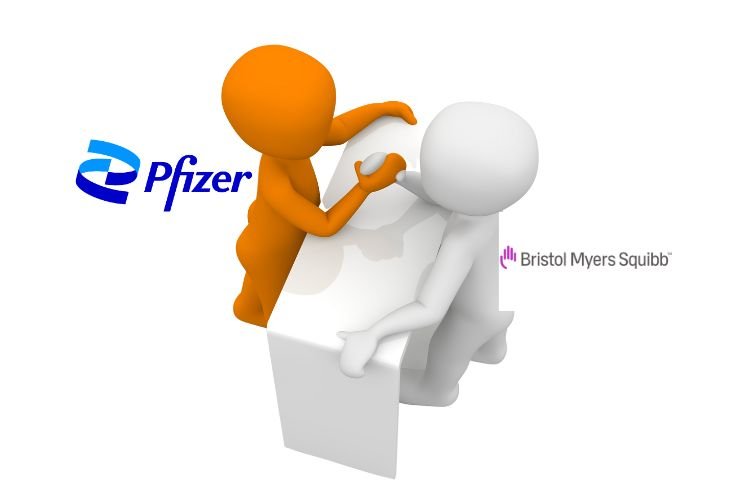Pfizer’s groundbreaking approval of its drug, Velsipity, as a once-daily oral treatment for adults suffering from moderate to severe active ulcerative colitis (UC) marks a significant turning point in the realm of gastroenterology and autoimmune therapies. This development has notable implications, particularly for Bristol Myers Squibb (BMS), as Velsipity poses a formidable challenge to BMS’ Zeposia, which secured its own UC approval in 2021.
Pfizer’s acquisition of Arena Pharmaceuticals for a substantial $6.7 billion played a pivotal role in bringing Velsipity to the forefront of UC treatment options. The efficacy and potential of Velsipity are compelling; Pfizer has positioned it as a possible best-in-class solution, backed by a clinical profile that has garnered the keen interest of healthcare professionals who are eager to integrate it into their prescription regimens.
“Because of the unpredictable nature of UC, people living with the disease can cycle through several different treatments over time. Patients may also be apprehensive about using injectable therapies, like biologics. It’s important to have new, effective options like VELSIPITY for those patients who may require an advanced treatment option and prefer the convenience of a once-daily pill. VELSIPITY is a proven advanced treatment with a favorable benefit-risk profile.”
– Dr. Michael Chiorean, Co-Director of the IBD Center at Swedish Medical Center and an investigator in the ELEVATE Registrational Program
Leerink Partners’ analysts have forecasted that Velsipity’s UC sales in the United States could soar to a staggering $1 billion by 2031. In parallel, BMS has set its sights on global sales exceeding $3 billion by 2030, spanning various medical indications. However, what truly sets Velsipity apart is its demonstrated efficacy, which surpasses Zeposia in separate clinical trials. It’s important to note that while cross-trial comparisons are not as robust as head-to-head trials, the results speak for themselves.
Also Read: NICE Approves Lilly’s Omvoh For Ulcerative Colitis After FDA Rejection, Citing Cost-Effectiveness And Clinical Benefits
The ELEVATE UC52 trial, conducted in UC patients who had not responded to or could not tolerate traditional therapies, biologics, or JAK inhibitors, showcased Velsipity’s impressive impact. It led to remission in 27% of patients at week 12, a substantial contrast to the 7% seen in the placebo group. Over the course of a year, the difference in response rates between the two arms widened to about 25%. In comparison, Zeposia exhibited a 19% advantage over the placebo after a year in its own trial.
Pfizer argues that the design of Velsipity’s trial, known as a “treat-through” model, in which patients adhere to their randomized treatment from day one, may have contributed to its underestimated efficacy advantage compared to Zeposia. In contrast, Zeposia’s study utilized a rerandomization design, where only patients who responded to the drug were rerandomized to either continue with Zeposia or switch to a placebo in the maintenance phase.
“UC can affect patients differently and many people living with this disease struggle with ongoing symptoms. The introduction of a new treatment for UC could increase options for patients, and we look forward to seeing the impact of VELSIPITY for patients across the US.”
– Michael Osso, President and CEO of the Crohn’s & Colitis Foundation
Additionally, Pfizer has highlighted a potential advantage in tolerability with Velsipity, particularly in regard to certain cardiovascular side effects. While three cases of treatment discontinuation related to a slow heartbeat were reported during the initial 12 weeks of the Velsipity study, Pfizer has stressed that these adverse events were not serious. Both Velsipity and Zeposia come with a warning about bradyarrhythmia, necessitating an ECG test before initiating treatment. However, unlike Zeposia, Velsipity does not require dosing titration.
Also Read: Skyrizi From AbbVie Wins A Maintenance Trial For Ulcerative Colitis And Is Poised To Receive FDA Approval
Furthermore, Pfizer and BMS are eyeing opportunities to expand the use of S1P drugs to other autoimmune diseases, including Crohn’s disease, demonstrating the potential of these drugs beyond UC.
Notably, Pfizer is not solely challenging Zeposia; Velsipity’s remarkable 32% response rate after one year positions it alongside some of the biologics currently available. Pfizer asserts that Velsipity merits a prominent place as a first-line novel treatment option immediately following traditional therapies like 5-ASA and steroids.





























